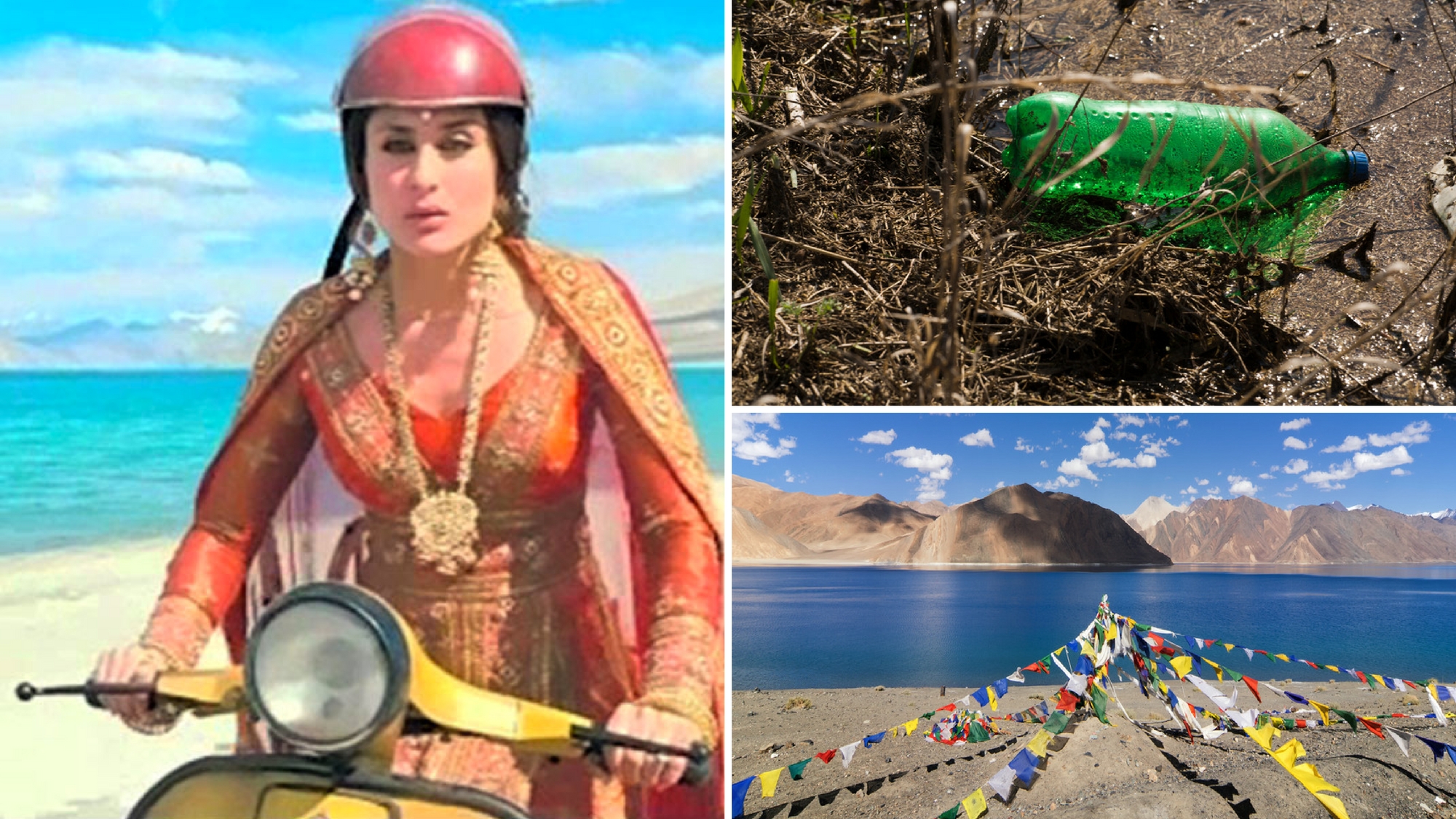Ladakh – the land of the Lamas – had been beckoning me for years; this June I finally decided to pack my bags and make it happen.
As a young environmentalist, I am used to being disappointed in the callous attitude of the Indian tourist. I am often that person staring at you if you’re screaming yourself hoarse in a quiet monastery, or throwing empty cola cans out of your car yet complaining about a ‘dirty’ India. The general attitude of talking loudly in tranquil places or taking pictures in prohibited areas is something that comes naturally to us as a nation.
These are issues of our cultural upbringing – we believe that these spaces belong to us and therefore, we have the liberty to get away with anything. As a country our incorrigible attitude makes us believe that there is nothing wrong with our behaviour; I like to refer to this as the “tu janta hai mera baap kaun hai?” (Do you know who my father is?) mentality.
This is not something we are unaware of, but one incident on this trip, made me step back and seriously introspect upon our irresponsible lifestyles and lack of compassion for the planet or fellow beings.
A Beauty Besmirched: Pangong Tso Lake
As you approach Pangong Tso (a high altitude lake in Ladakh), you can see the bright blue water shimmering amidst low lying hills. It is a mesmerising sight – one that made me stow away my camera to better absorb it.
As I got closer, however, the scene changed dramatically; a speck of sand packed with about a hundred people appeared in the middle of the lake. Our driver, Norbu bhai, told us that this was where the film 3 Idiots was shot. It’s called the ‘Shooting Point’ and I couldn’t help but pun myself seeing the abundance of selfie sticks!
Pleasantly surprised at our decision to not stop there, Norbu bhai obliged and drove us to a quieter spot from where we could walk to the bank. My heart sank with every lake-ward step as I saw smaller ponds leading up to the lake choked with plastic bottles and packets of chips. I realised that this pristine spot in the heavens, a protected nesting site for several endangered birds, was now populated by only a few hardy Brahmini ducks, which were also probably seeking another home away from this madness of the human race.
Back at our tent, we headed out to the lakeside to watch the sun set. There was even more trash here. Even the water was dirty. Having had enough, we decided to do something. Armed with bags from the tent kitchens, we headed out to collect the trash, and filled 8 large bags before we even got to the lake.
Frustrated, I picked up an empty bag and headed to the lakeside directly. As I picked up people’s trash, a handful of people joined in to help. Mostly, people just stared at us. A group of drunk youths, who had driven their SUV to the edge of the lake (you’re not allowed to, btw), sang a distorted version of the ‘clean India mission’ on seeing me, and ‘enterprisingly’ decided to dump their now empty bottles in the trash bag I was holding.
The shock left me speechless.
Once You’re Done With That Pack of Chips...
A family of ten stopped taking selfies when I came into their frame trying to pull out a large plastic bag lodged in the rocks they were happily sitting on. One of them asked if we were ‘NGO waale’. This is how the conversation went –
Person: Are you from an organisation?
Me: No.
Person: Then why are you doing this?
Me: *blank expression* Umm, because this is my country and I would like my future generations to see this lake like I did.
Person: Oh! Great job. *Walks away to take another selfie*
The general apathy of the Indian tourist is nothing I’m oblivious to but to be so removed from reality and look past your impact on the planet within the blink of an eye, is appalling. As a society, we are happy as long as our house is clean; we don’t give two hoots what the road outside looks or smells like. The Prime Minister can keep giving speeches about “Swacch Bharat” but we can’t hear it over the heap of trash we’ve built outside our chemically cleaned houses. I’m aware that this sounds like a rant, but it’s high time we took true ownership of our public places and stopped littering indiscriminately.
I could go on about bigger issues of public health, sanitation and the waste disposal systems in the country, but there isn’t too much you or I could do about that. Today, I beg you to think about what you’re leaving behind for our tomorrow, as an individual – the next time you buy a packet of chips or a bottle of cola, think about where it lands up once you’re done with it.
Please. Think. That’s all I ask of you.
(Richa Tyagi is an environmental law researcher, working on biodiversity conservation, environmental law and policy, forests, and governance issues in India. An amateur conservationist, Richa is also an avid traveller, and tries to keep her footprint low while she’s on the move. To know more, write to her at richatyagi14@gmail.com.)
(At The Quint, we question everything. Play an active role in shaping our journalism by becoming a member today.)
